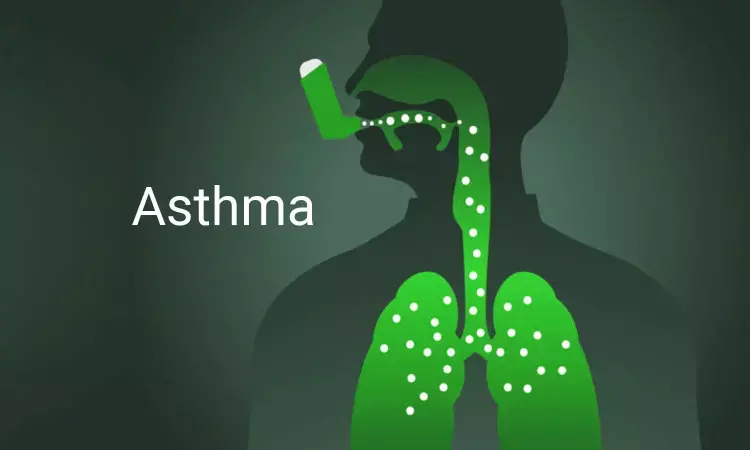- Home
- Medical news & Guidelines
- Anesthesiology
- Cardiology and CTVS
- Critical Care
- Dentistry
- Dermatology
- Diabetes and Endocrinology
- ENT
- Gastroenterology
- Medicine
- Nephrology
- Neurology
- Obstretics-Gynaecology
- Oncology
- Ophthalmology
- Orthopaedics
- Pediatrics-Neonatology
- Psychiatry
- Pulmonology
- Radiology
- Surgery
- Urology
- Laboratory Medicine
- Diet
- Nursing
- Paramedical
- Physiotherapy
- Health news
- Fact Check
- Bone Health Fact Check
- Brain Health Fact Check
- Cancer Related Fact Check
- Child Care Fact Check
- Dental and oral health fact check
- Diabetes and metabolic health fact check
- Diet and Nutrition Fact Check
- Eye and ENT Care Fact Check
- Fitness fact check
- Gut health fact check
- Heart health fact check
- Kidney health fact check
- Medical education fact check
- Men's health fact check
- Respiratory fact check
- Skin and hair care fact check
- Vaccine and Immunization fact check
- Women's health fact check
- AYUSH
- State News
- Andaman and Nicobar Islands
- Andhra Pradesh
- Arunachal Pradesh
- Assam
- Bihar
- Chandigarh
- Chattisgarh
- Dadra and Nagar Haveli
- Daman and Diu
- Delhi
- Goa
- Gujarat
- Haryana
- Himachal Pradesh
- Jammu & Kashmir
- Jharkhand
- Karnataka
- Kerala
- Ladakh
- Lakshadweep
- Madhya Pradesh
- Maharashtra
- Manipur
- Meghalaya
- Mizoram
- Nagaland
- Odisha
- Puducherry
- Punjab
- Rajasthan
- Sikkim
- Tamil Nadu
- Telangana
- Tripura
- Uttar Pradesh
- Uttrakhand
- West Bengal
- Medical Education
- Industry
Permanent night shift workers at heightened risk of moderate to severe asthma

Shift workers, especially those working permanent night shift rotas, may be at heightened risk of moderate to severe asthma, suggests research published online in the journal Thorax.
Given the prevalence of both shift work and asthma in industrialised nations, the public health implications of these findings are potentially "far-reaching," warn the researchers.
Around 1 in 5 employees in the developed world works permanent or rotating night shifts. Shift work causes a person's internal body clock (circadian rhythm) to be out of step with the external light and dark cycle.
This misalignment is associated with a heightened risk of various metabolic disorders, cardiovascular disease, and cancer.
Symptoms of asthma, such as wheeze and airway whistling, vary considerably, according to the time of day or night, and the researchers wanted to find out if shift work might also be associated with an increased risk of asthma and/or its severity.
They were also keen to explore how influential chronotype--individual body clock preference for morning ('lark') or evening ('owl') activity--and genetic predisposition to asthma might be.
They drew on medical, lifestyle, and employment information supplied between 2007 and 2010 by 286,825 participants in the UK Biobank.
All these participants were aged between 37 and 72, and either in paid employment or self-employed. Most (83%) worked regular office hours, while 17% worked shifts, around half of which (51%) included night shifts. Shift patterns comprised: never or occasional night shifts; irregular or rotating night shifts; and permanent night shifts.
Compared with those working office hours, shift workers were more likely to be men, smokers, and to live in urban areas and in more deprived neighbourhoods. They also drank less alcohol, slept fewer hours, and worked longer hours.
Night shift workers were more likely to be 'owls' and to have poorer health. And they were more likely to work in service jobs or as process, plant and machine operatives; those working office hours tended to be in administrative roles and to have professional jobs.
After taking account of age and sex, and a wide range of other potentially influential risk factors, there was a 36% increase in the odds of having moderate to severe asthma in permanent night shift workers compared to those working normal office hours.
Similarly, the odds of wheeze or airway whistling were 11-18% higher among those working any of the three shift patterns, while the odds of poorer lung function were around 20% higher in shift workers who never or rarely worked nights and in those working permanent night shifts.
Those who were definitely either larks or owls, known as 'extreme chronotypes,' were significantly more likely to have asthma even after taking account of a range of potentially influential risk factors. And the odds of moderate to severe asthma were 55% higher among larks working irregular shifts, including nights.
But genetic susceptibility to asthma didn't affect the odds of developing asthma among those working shifts.
This is an observational study, so can't establish cause, say the researchers. "However, it is plausible that circadian misalignment leads to asthma development," they point out."
"Interestingly, chronotype does change with age, getting later through adolescence and then earlier as adults age, suggesting that older individuals might find it more difficult to adjust to night shift work than younger adults," they explain.
"The public health implications of our findings are potentially far-reaching, since both shift work and asthma are common in the industrialised world," they warn. Asthma affects 339 million people worldwide and costs health and care services more than £1billion in the UK alone.
"There are no specific national clinical guidelines for how to manage asthma in shift workers," they highlight, but adapting shift work schedules to suit individual chronotype might be a worthwhile public health measure that is worth exploring further, they suggest.
Dr Kamal Kant Kohli-MBBS, DTCD- a chest specialist with more than 30 years of practice and a flair for writing clinical articles, Dr Kamal Kant Kohli joined Medical Dialogues as a Chief Editor of Medical News. Besides writing articles, as an editor, he proofreads and verifies all the medical content published on Medical Dialogues including those coming from journals, studies,medical conferences,guidelines etc. Email: drkohli@medicaldialogues.in. Contact no. 011-43720751


